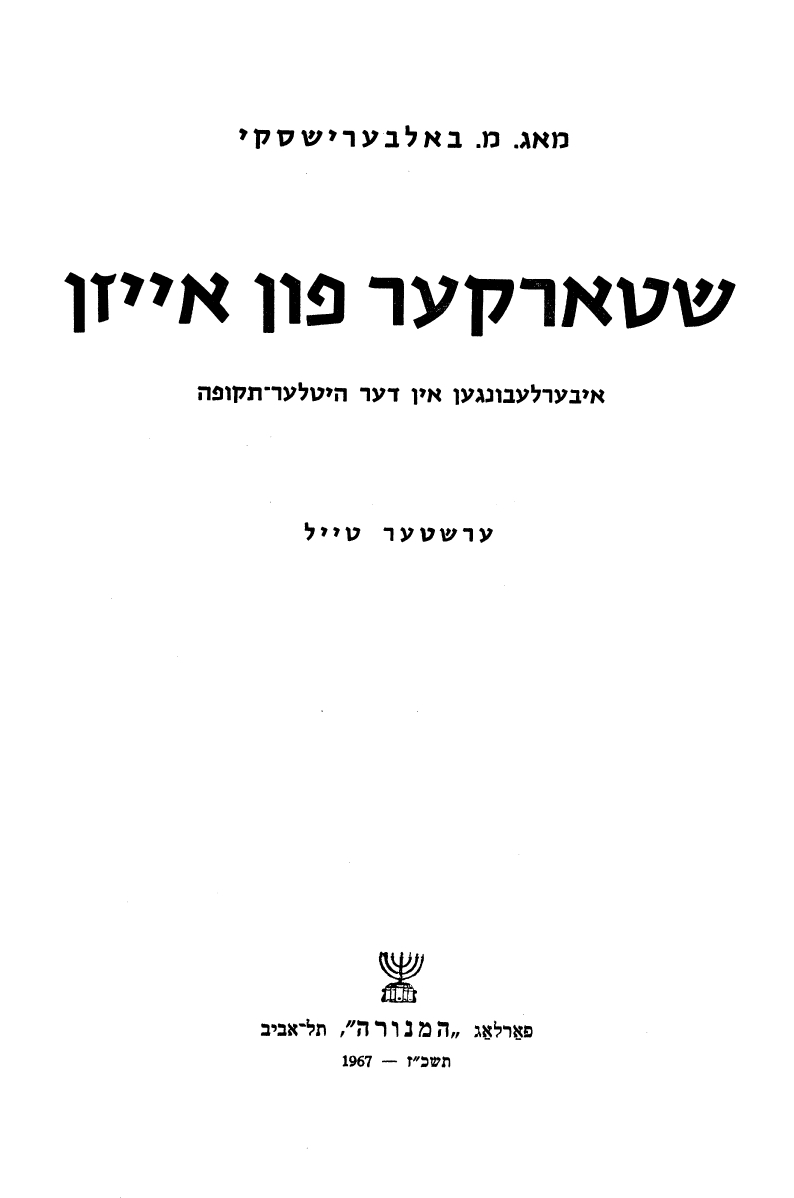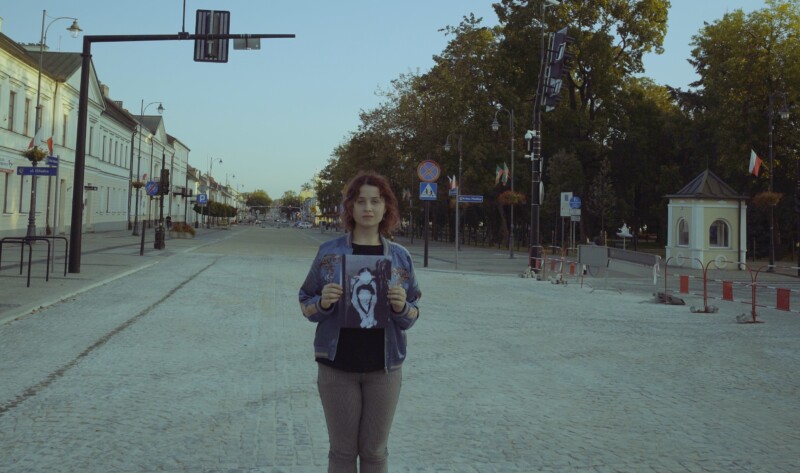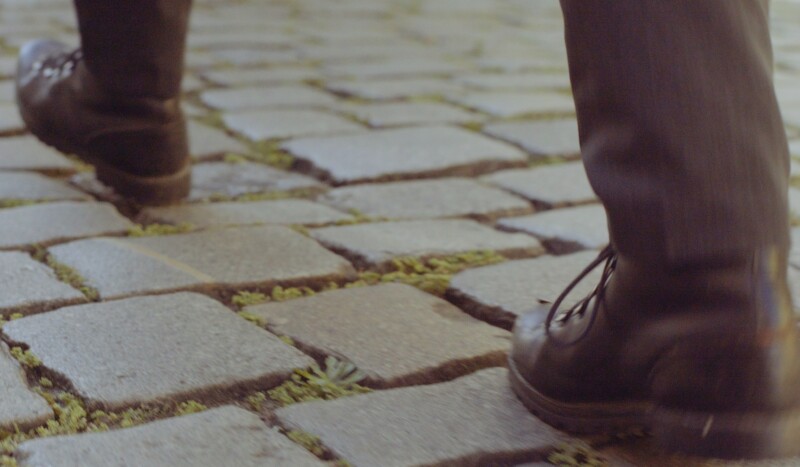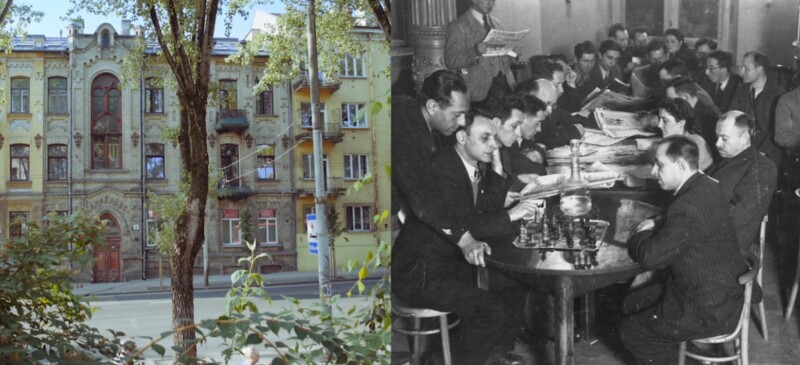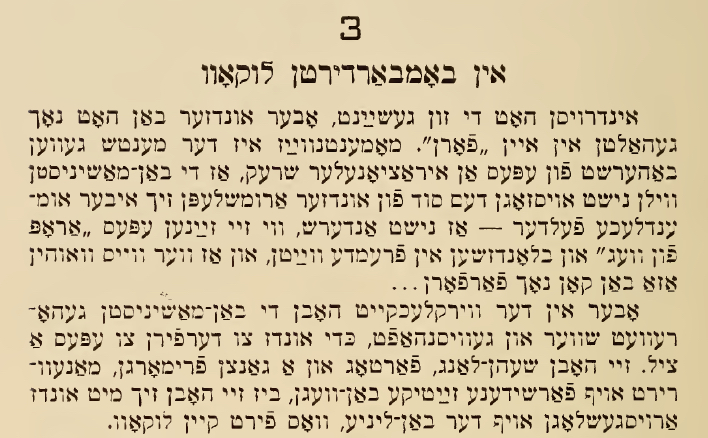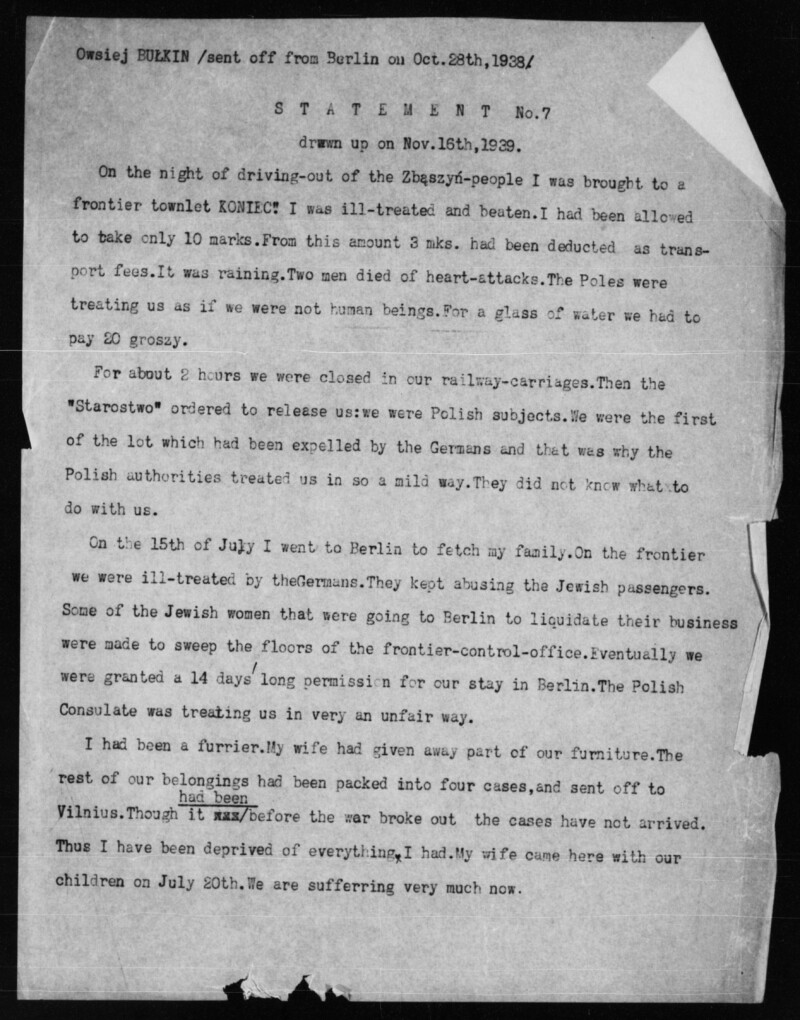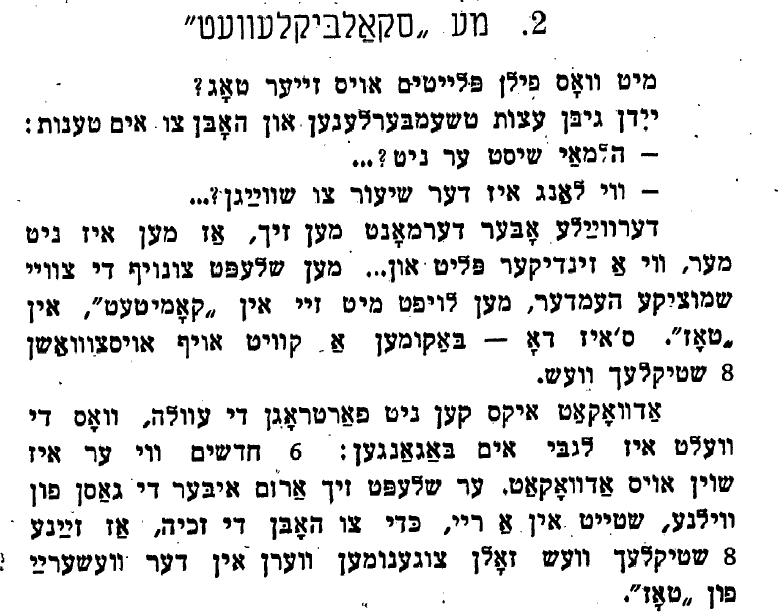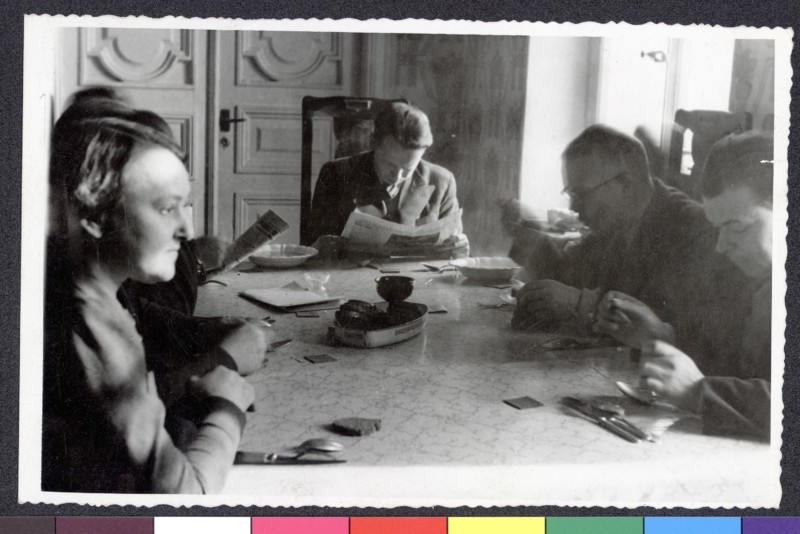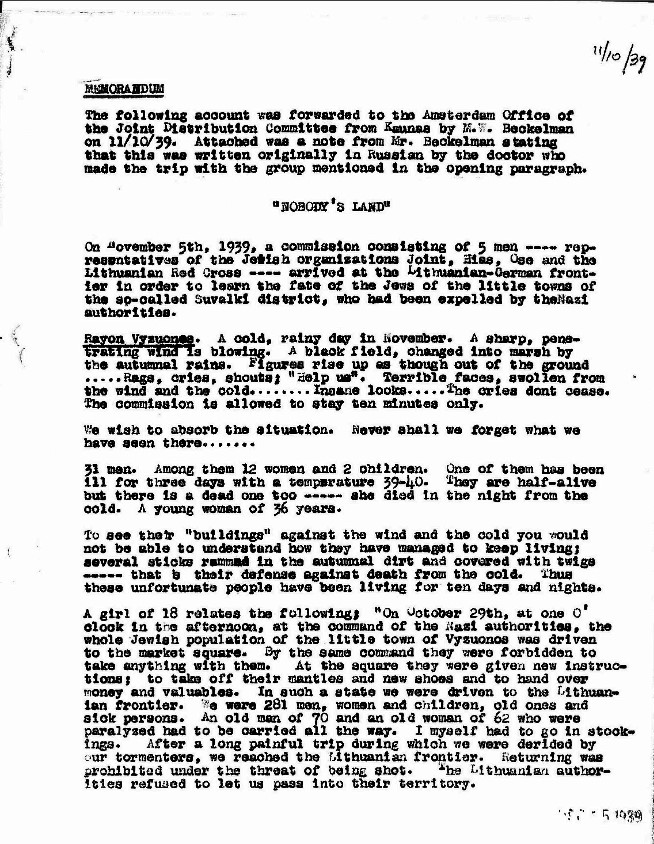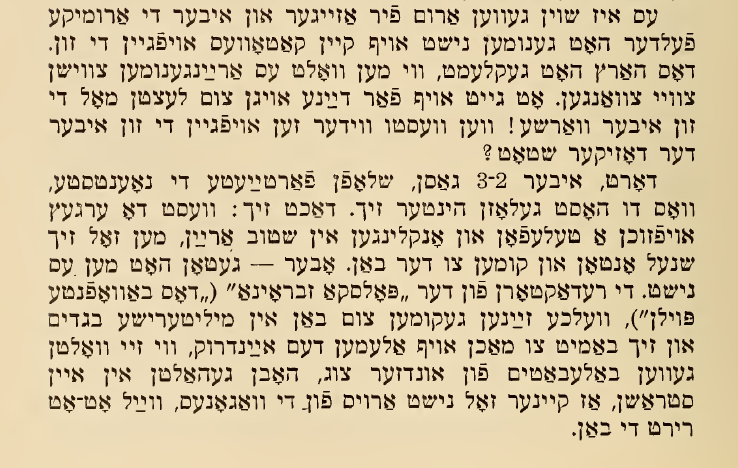קומענדיק קײן װילנע, האָב איך זיך גלײַך גענומען צוריק צו געזעלשאַפֿטלעכער אַרבעט. כ’האָב קודם־כּל אָנגעשריבן אַן אַרבעט װעגן מײַן װאַנדערװעג פֿון לאָדזש קײן װילנע. די אַרבעט האָב איך געגעבן נח פּרילוצקי, װעלכער האָט מיט “דזשאָינט”־מיטלען שוין באַװיזן צו אָרגאַניזירן אַ היסטאָרישע קאָמיסיע צו זאַמלען אַלע מעגלעכע מאַטעריאַלן פֿון דער דאָזיקער צײַט. סעקרעטאַר פֿון דאָזיקן ביוראָ איז געװען הערש גוטגעשטאַלט (אַ בונדיסט פֿון װאַרשע). דאָס ביוראָ האָט אויפֿגעזאַמלט אַ געװאַלטיקע צאָל מאַטעריאַל װעגן דײַטשישע רציחות אין אַ רײ שטעט און שטעטלעך פֿון פּוילן, פֿאַר די ערשטע חדשים פֿון זײער הערשאַפֿט. ידיעות פֿון יענער זײַט פֿלעגן אָנקומען כּסדר דורך פּליטים. עס האָבן זיך אין דער געהײמער קאָמיסיע אָנגעזאַמלט גבֿיות־עדותן, דאָקומענטן, געלע לאַטעס, מיט מגן־דוד’ס אין פֿאַרשידענע פֿאָרמען, דײַטשע אונטערדריקונגען, פֿאַראָרדענונגען א.אַ.װ.
When I came to Vilnius, I immediately resumed my social activities. First of all I wrote a report about my walk from Łódź to Vilnius. I gave the work to Noyekh Prilutski, who had already managed, with Joint funds, to organize a historical commission to collect all sorts of materials from that time. Secretary of this office was Hersh Gutgeshtalt (a Bundist from Warsaw). The office has accumulated a huge amount of material about German crimes in a number of cities and shtetlekh in Poland in the first months of their rule. News from the other side used to come through refugees all the time. The secret commission had accumulated testimonies, documents, yellow badges with Stars of David in various forms, German repression, decrees, etc.
Mendel Balberyszski (1894-1966) was born in Vilnius but had been living in Łódź for over a decade at the outbreak of the Second World War. In the interwar period, Balberyszski was an editor of the Yiddish newspaper Der Tog (The Day) in Vilnius. He became a member of the Polish Jewish Folkspartey (People’s Party) and, as part of it, fought for cultural autonomy for Polish Jewry. In 1925, Balberyszski founded the Association of Jewish Craftsmen and Small Entrepreneurs in Łódź and became the president of the largest Jewish aid organization Noten Lekhem (Bread Giver). In 1939, he became the leader of the Polish Democratic Party, one of the three most important political parties in interwar Poland.
In the first days of September 1939, he decided to flee from the German Wehrmacht to Vilnius, where he arrived in relief on September 29. Here he took part in a large documentation project of German crimes, which was initiated by the Jewish refugee community with Noyekh Prilutski as initiator and with the financial support of the Joint. Founded in November 1939, the so-called Komitet tsu zamlen materialn vegn yidishn khurbn in Poyln 1939 (Committee for the Collection of Material on the Destruction of Jewish Communities in Poland 1939) is considered one of the earliest historical Jewish commissions to offer documentary resistance in the shadow of the incipient Holocaust.
Balberyszski survived the “liquidation” of the small and large ghetto in Vilnius and experienced the liberation by the Red Army in a concentration camp in Estonia. After the end of the war he emigrated to Australia and continued to be actively involved in Jewish community work. He founded the Association of Partisans and Camp Survivors, of which he became president. His memoir Shtarker fun ayzn : Iberlebungen in der Hitler-tkufe (“Stronger than Iron, Surviving in Hitlers era”), this text being part of it, was published in 1967.
Excerpt:
Mendel Balberyszski, Shtarker fun ayzn : Iberlebungen in der Hitler-tkufe, Vol. 1 (Tel Aviv: HaMenorah, 1967), pp. 88.
From the Yiddish Book Center’s Steven Spielberg Digital Yiddish Library.

